By the 1980s there were kids’ shows on TV on Saturday mornings and the traditional cinema matinée was dead. The Children’s Film Foundation was on the rocks. The unkindest cut must have been that no one really missed it. The quality of television drama aimed at their target audience had risen exponentially during the 70s; the reels of Blytonesque japes that had once drawn pre-teens in droves to the box office now looked tired and formalistic.
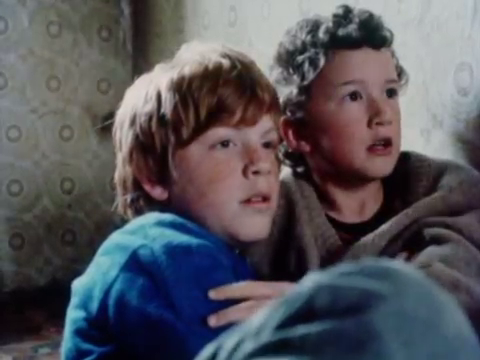 If the CFF was to survive, then they had to up their game. In a series of 80s made-for-television films they did just that and, of the ones I’ve seen, Out of the Darkness is by far the best.
If the CFF was to survive, then they had to up their game. In a series of 80s made-for-television films they did just that and, of the ones I’ve seen, Out of the Darkness is by far the best.
I’ve described it elsewhere as possibly the greatest kids’ horror film ever made. I say that in the context of its being a 1985 TV movie, of course: they had neither the funds nor the technology to make The Spiderwick Chronicles.
Given the available resources, though, this is a jolly good show, chaps!
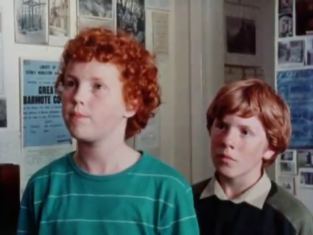
A ghost story set against the stunning backdrop of the Derbyshire Peak District, Out of the Darkness is Stephen King for kids – and seriously spooky.
The Neil family have inherited a run-down cottage near the isolated Derbyshire village of Eyam. Mrs Neil, her children, Mike and Penny along with their friend Tom travel down to check it out. Tom immediately feels a strange connection with the derelict house. Soon he starts hearing disturbing voices, including that of a young boy desperately crying out to him.
That night, Tom sees a boy in the garden. He looks distressed – and why does he have a bell around his neck?
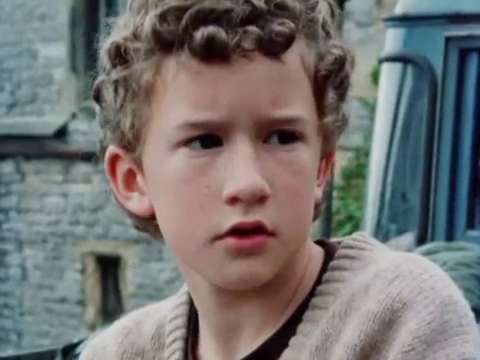
Mike and Penny tease Tom about all this, putting it down to his over-active imagination, until Penny, too, starts having unnerving visions, leaving Mike strangely out on a limb.
It’s only when the proprietors of their guest house tell the children about the plague that hit Eyam and the villagers’ horrific treatment of an 11-year-old boy that it all starts to make chilling sense…
The back-story is a historical fact
All the more creepy is that the back-story is historical fact, making the tale educational to boot.
Technically speaking, this is not a great film. It’s palpably low-budget and only the timelessness of the Derbyshire scenery saves it from looking more dated than it does. The inexperience of the young cast members shows through too, though that somehow adds to the charm of it. None of them aspired to a career in acting (though Gary Halliday [Tom] went on to become a film director). They were just regular kids who, thankfully, had authentic accents. It would have ruined it to have plummy-mouthed drama-school luvvies trying to “sound like wot they do oop north, like,” (a mistake the CFF made in several previous productions.)
The adult performances are all strong, though, and the cinematography exploits the remarkable location to the full.
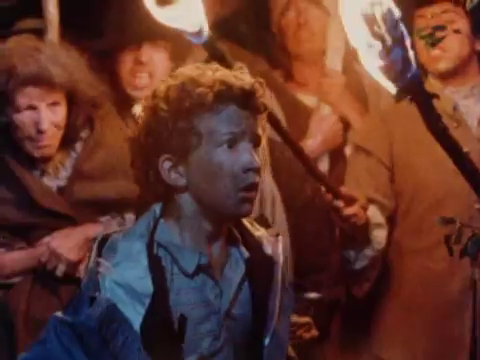
What makes this gem outstanding for me is the way the story draws in the audience and demands a connection with the characters – Tom in particular, much as he feels connected to the mysterious ghost-boy. It’s hard to define how it manages this, but that’s why it sends such a shiver down the spine when he ends up in paranormal trouble.
I was about 10 when I first saw Out of the Darkness and it was looking rather creaky even then. But that didn’t matter: for me it was an unforgettable experience. Even now, watching it through a critical adult eye, I find it an awesome production. Having discussed it on online forums in my search for a good copy, I have discovered that I am far from the only one who feels that way.
Clip from Out of the Darkness
John Hoyland’s novella The Ivy Garland, on which the story is based, is worth reading too, but see the film first to dodge the spoilers.
I’m sure it won’t work for everyone, but if you like the concept then I strongly recommend you give this film a try.
After years of unavailability, Out of the Darkness is now on sale to European (Region 2) customers as part of an inexpensive CFF box-set called Scary Stories on Amazon UK. North American viewers may have to be more creative in their search.
http://www.imdb.com/title/tt0272766/combined
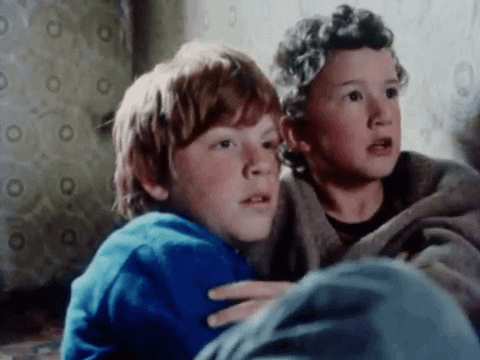



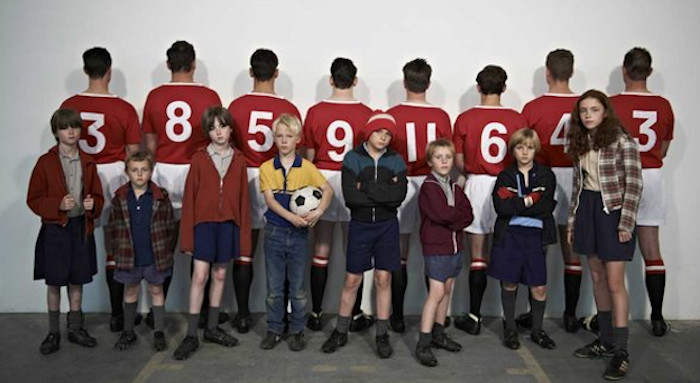 That’s what makes this film so darn frustrating. It could have been so good. But instead, cue the stinger: there’s an entrance fee for the cup competition and none of the kids has any money. So Georgie (bless his little cotton socks) snatches a rich-looking old guy’s wallet. The old guy just happens to be Sir Matt Busby, who sets off in hot pursuit.
That’s what makes this film so darn frustrating. It could have been so good. But instead, cue the stinger: there’s an entrance fee for the cup competition and none of the kids has any money. So Georgie (bless his little cotton socks) snatches a rich-looking old guy’s wallet. The old guy just happens to be Sir Matt Busby, who sets off in hot pursuit.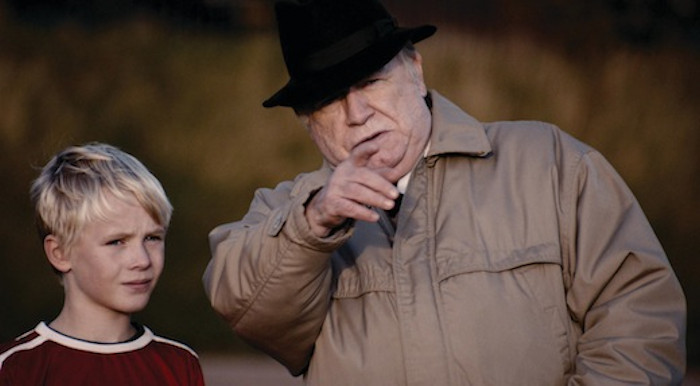

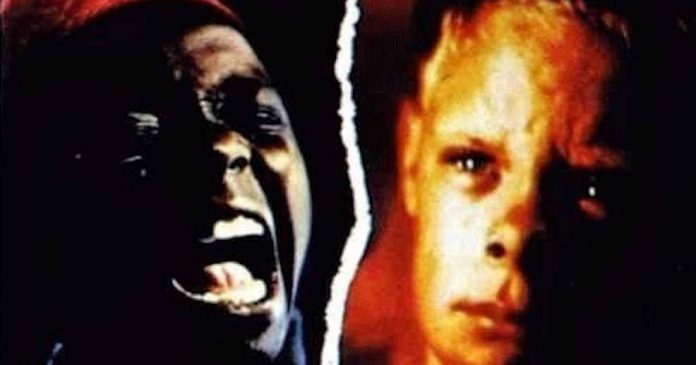
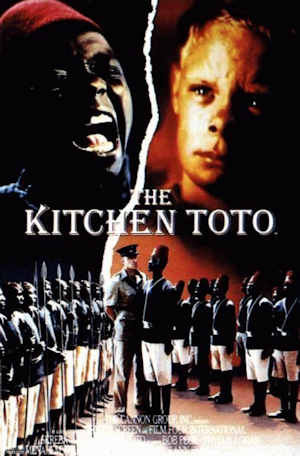 Written and directed by Harry Hook, Kitchen Toto is a 1987 drama which focuses on particularly turbulent times during the British colonial rule of Kenya and the Kikuyu tribe uprising that sparked the aspirations of independence for the African nation. The film’s covert art and promotional materials are likely to convince potential viewers that the film would feature strong Coming-of-Age motifs. But, alas, even if such intentions were suggested, they were never fully realized.
Written and directed by Harry Hook, Kitchen Toto is a 1987 drama which focuses on particularly turbulent times during the British colonial rule of Kenya and the Kikuyu tribe uprising that sparked the aspirations of independence for the African nation. The film’s covert art and promotional materials are likely to convince potential viewers that the film would feature strong Coming-of-Age motifs. But, alas, even if such intentions were suggested, they were never fully realized.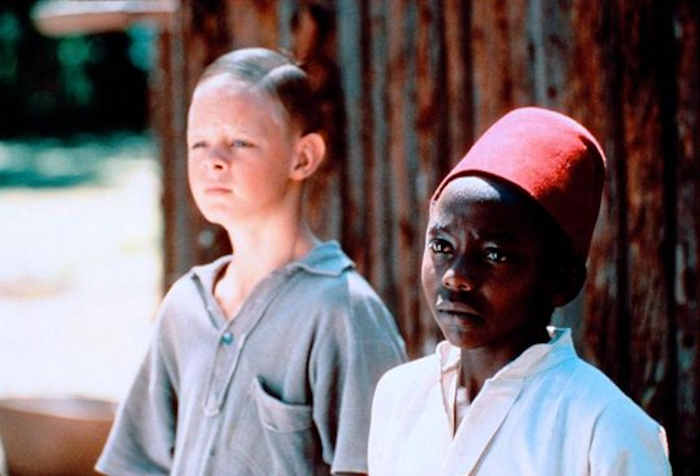
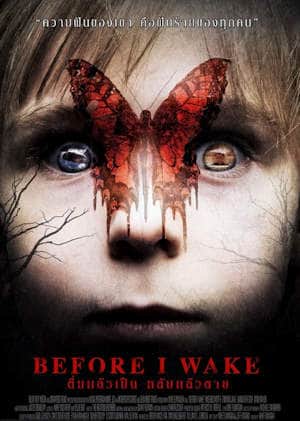
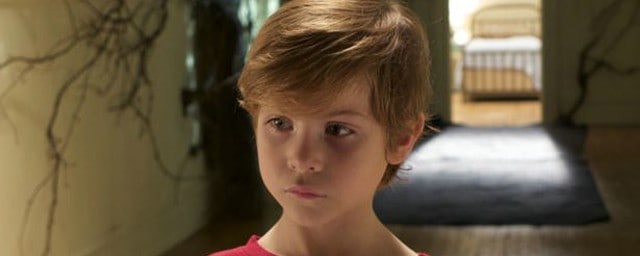
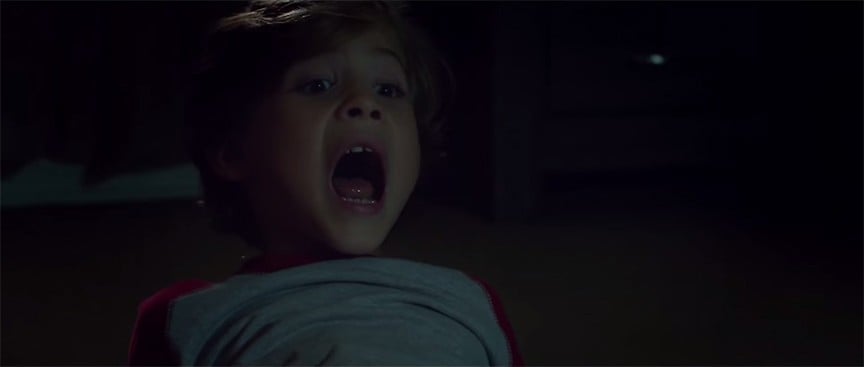
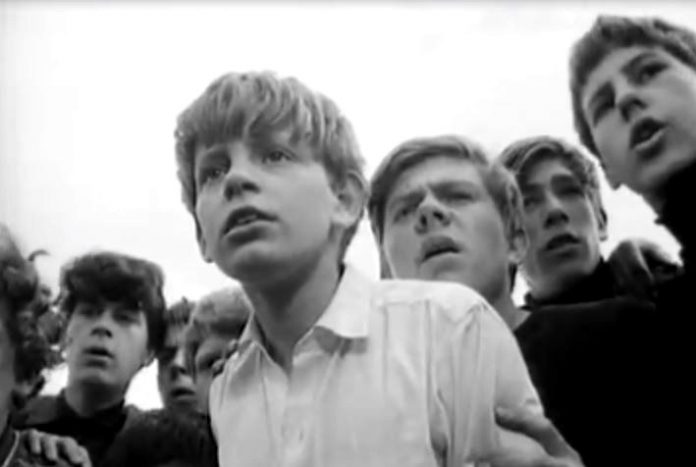
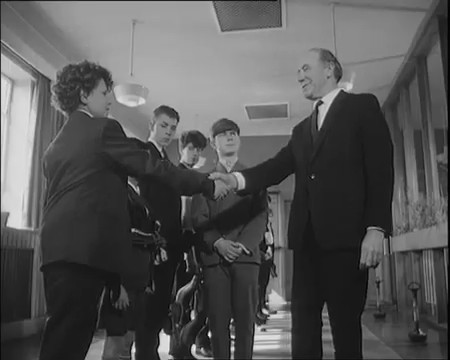 A part of the Rank Organisation, the CFF gained a cult following among many parents as well as the kids who flocked to see the often pretty dire productions at Saturday cinema matinées in the UK. During their heyday in the 60s and 70s, it was common for A-List actors to make cameo appearances in these films (for which they were paid standard Equity rates) just for the fun of it.
A part of the Rank Organisation, the CFF gained a cult following among many parents as well as the kids who flocked to see the often pretty dire productions at Saturday cinema matinées in the UK. During their heyday in the 60s and 70s, it was common for A-List actors to make cameo appearances in these films (for which they were paid standard Equity rates) just for the fun of it.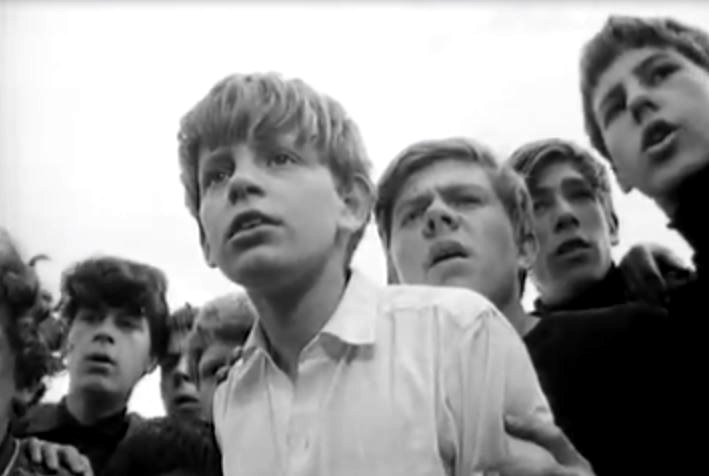 Notably, it moved out of the CFF’s southern home-counties comfort zone to be filmed on location in Manchester and Salford. This step made the London drama-school accents of many of the principal kids almost forgivable. Memorably sassy performances from young Susan George, Olivia Hussey and Amanda Humby were woven in to appeal to the girls in the audience and the finished product still makes great family entertainment.
Notably, it moved out of the CFF’s southern home-counties comfort zone to be filmed on location in Manchester and Salford. This step made the London drama-school accents of many of the principal kids almost forgivable. Memorably sassy performances from young Susan George, Olivia Hussey and Amanda Humby were woven in to appeal to the girls in the audience and the finished product still makes great family entertainment.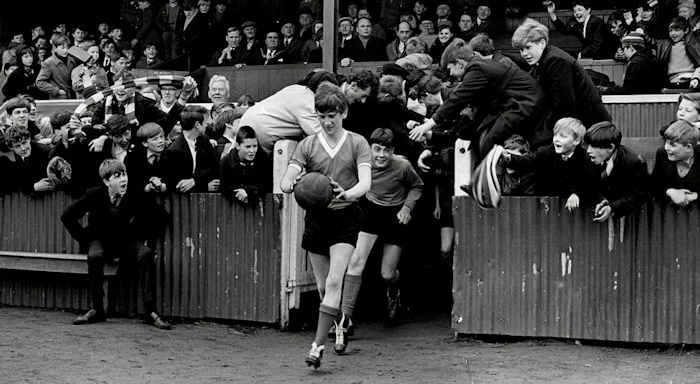
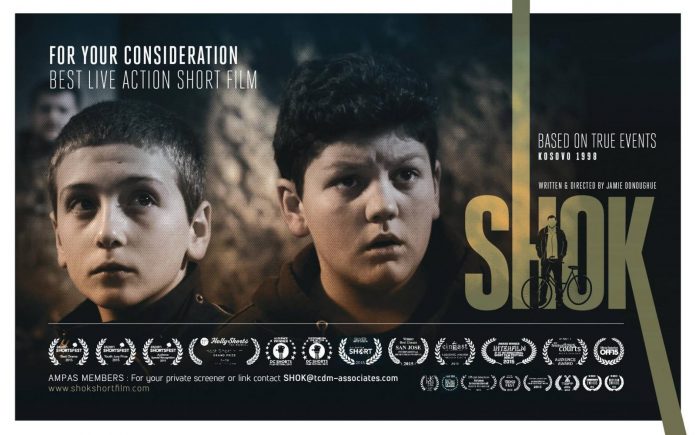
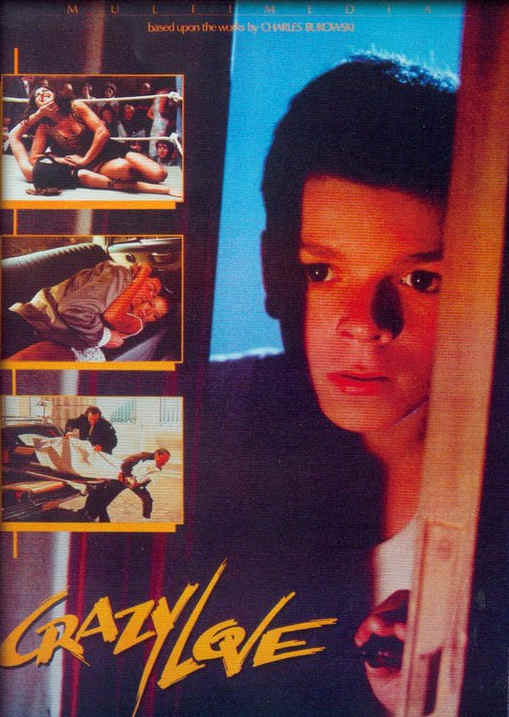

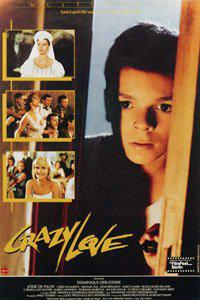 With a script influenced (and co-written) by German-American poet and novelist Charles Bukowski, in Crazy Love one would expect a distinctive and peculiar cinematic experience.
With a script influenced (and co-written) by German-American poet and novelist Charles Bukowski, in Crazy Love one would expect a distinctive and peculiar cinematic experience.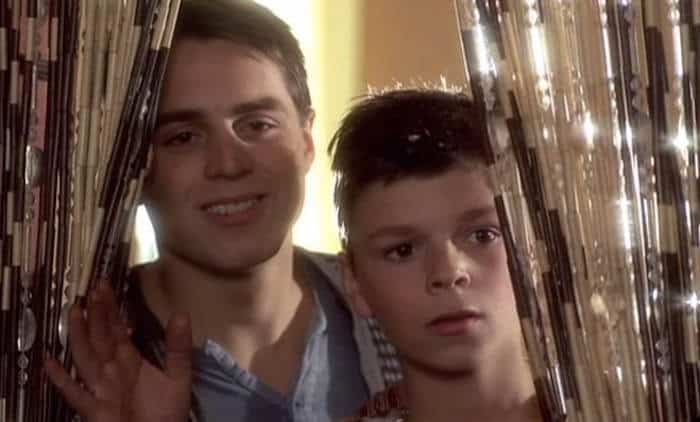
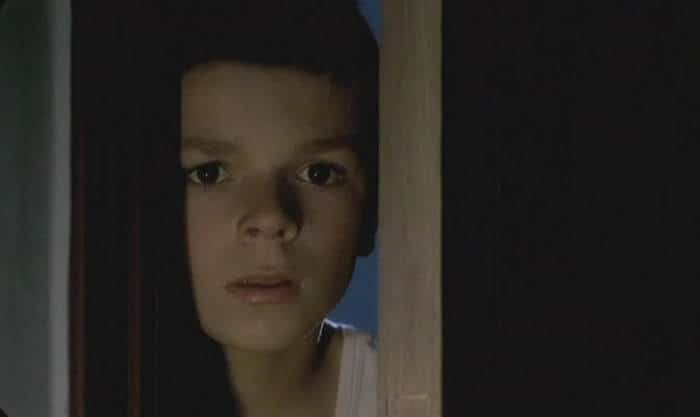
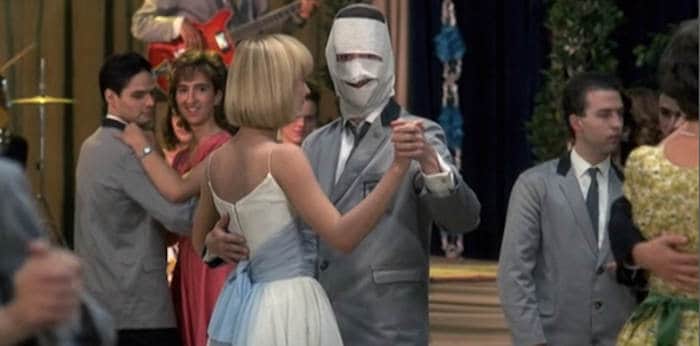 The film’s cinematography impresses with its attention to detail and skillful use of tracking shots and light, used for emphasizing a setting or an emotion. The mood differs in the three acts of the narrative – and the photography morphs to follow. The music accompaniment, both diegetic and non-diegetic, features live performances that not only sound great, but also reflect on and enhance the events on screen.
The film’s cinematography impresses with its attention to detail and skillful use of tracking shots and light, used for emphasizing a setting or an emotion. The mood differs in the three acts of the narrative – and the photography morphs to follow. The music accompaniment, both diegetic and non-diegetic, features live performances that not only sound great, but also reflect on and enhance the events on screen.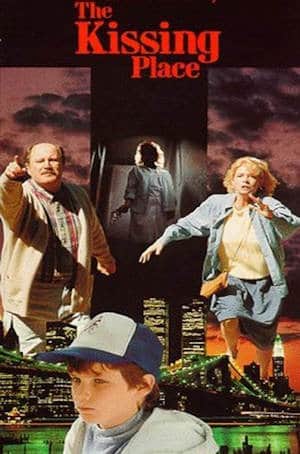
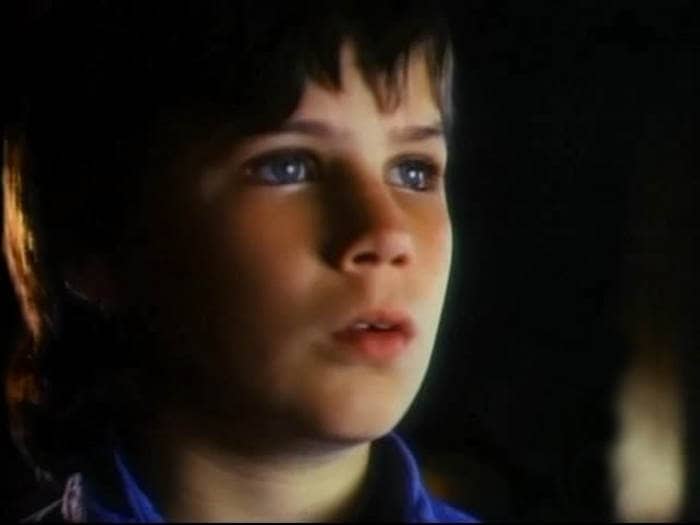
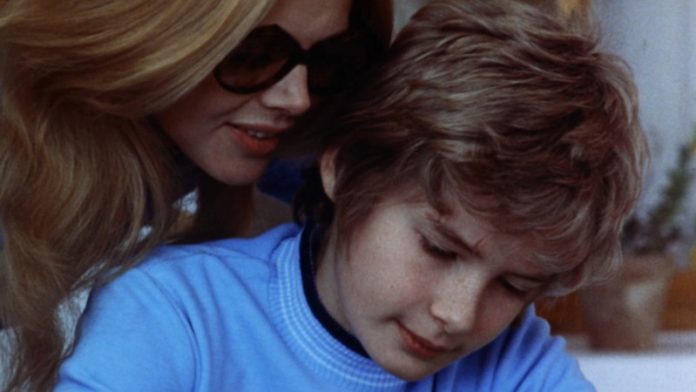
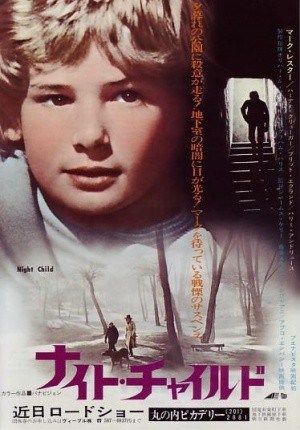
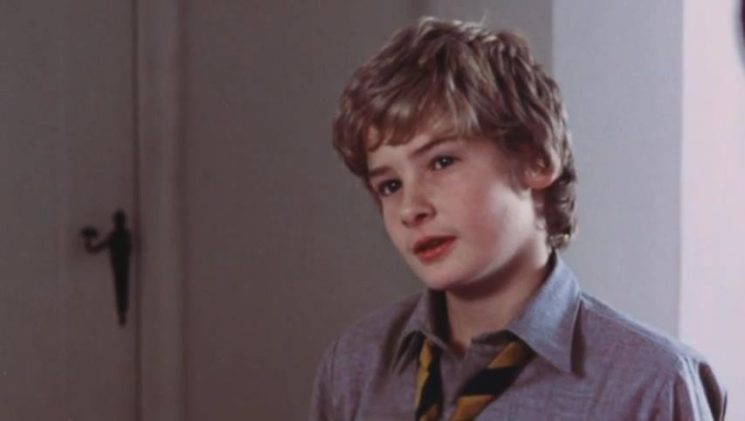
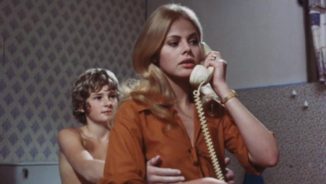
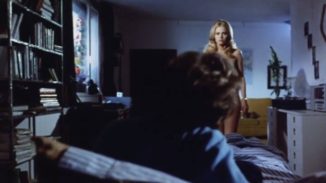
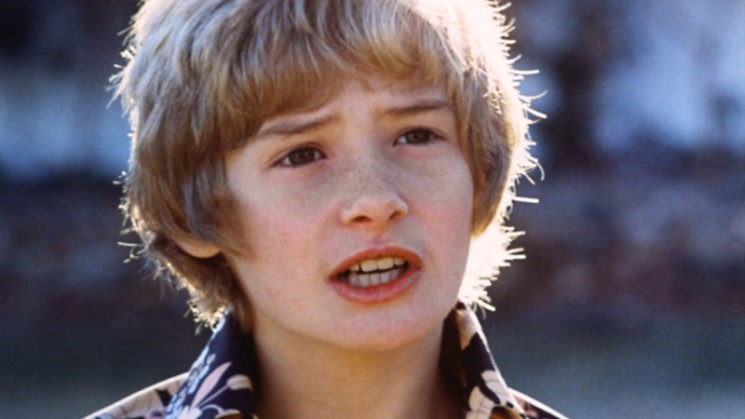



 Two years of pro lessons have embellished a voice that is clear and confident, tender or raunchy as the song demands. Henno has also written a blues song You You-You which he performs with style.
Two years of pro lessons have embellished a voice that is clear and confident, tender or raunchy as the song demands. Henno has also written a blues song You You-You which he performs with style.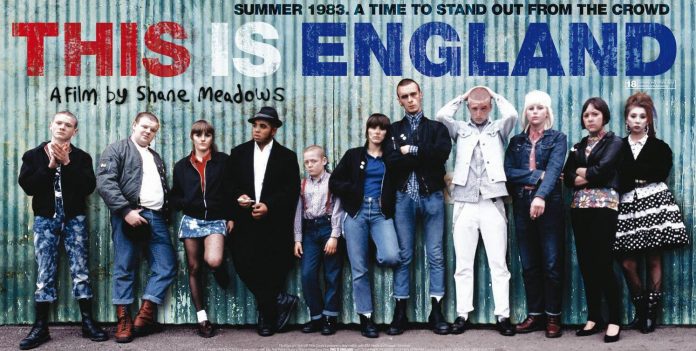
 I grew up in northern England in the nineties. We lived in a trendy-lefty suburban village where race was not an issue (largely by virtue of the population being middle-class and near-exclusively white). However, our utopia bordered Greater Manchester, where things, as I knew, were different. Our neighboring borough of Oldham had some British National Party councillors in local government and its streets were the scene of several race riots during my childhood.
I grew up in northern England in the nineties. We lived in a trendy-lefty suburban village where race was not an issue (largely by virtue of the population being middle-class and near-exclusively white). However, our utopia bordered Greater Manchester, where things, as I knew, were different. Our neighboring borough of Oldham had some British National Party councillors in local government and its streets were the scene of several race riots during my childhood.
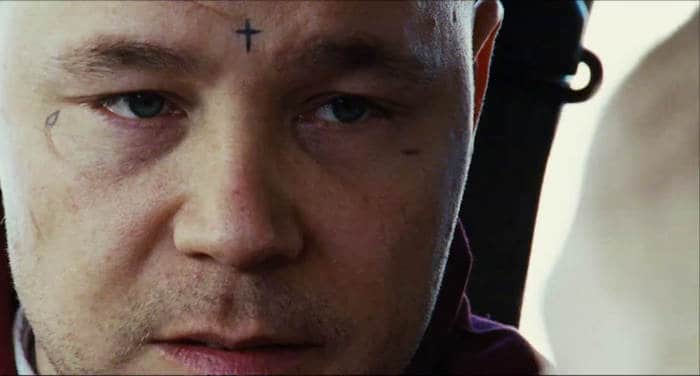
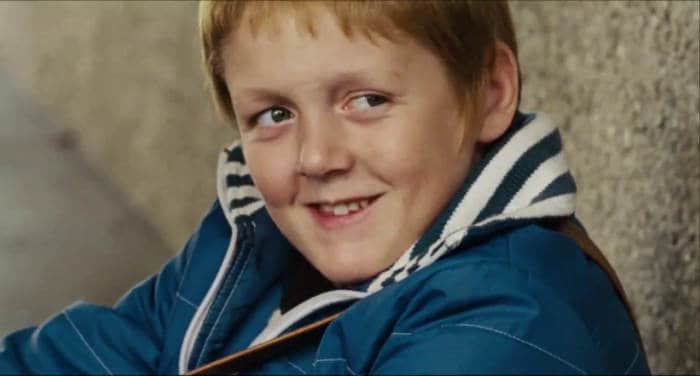
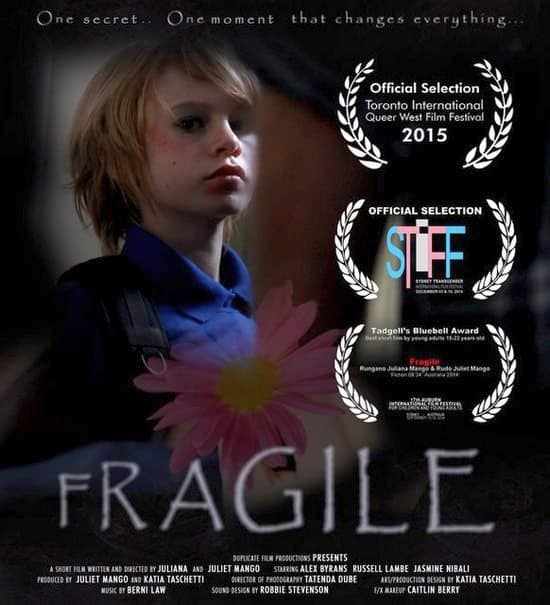
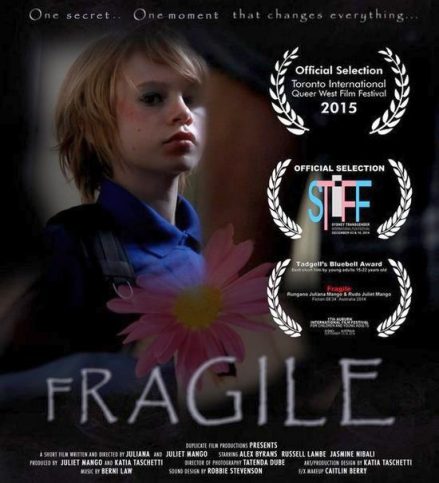 Discovering who one really is and embracing oneself can be a daunting task at any age. Portraying the process in cinema also presents its challenges as it requires a storytelling approach that allows the inner intimate world of a person to shine through.
Discovering who one really is and embracing oneself can be a daunting task at any age. Portraying the process in cinema also presents its challenges as it requires a storytelling approach that allows the inner intimate world of a person to shine through.